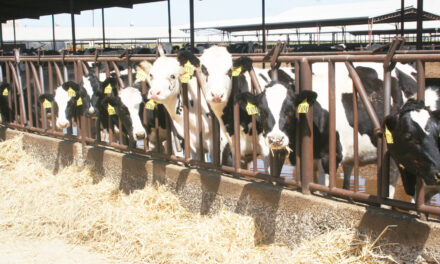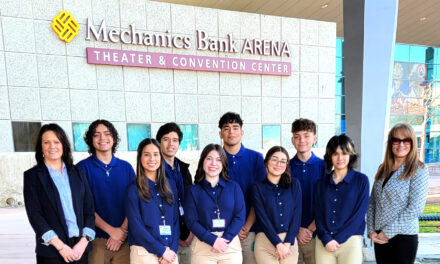Merced College has been awarded a $1,514,520 grant as part of the U.S. Department of Labor’s Strengthening Community Colleges Training Grants program.
This initiative, which recently allocated $65 million to 18 colleges across 14 states, aims to enhance community colleges’ capacity to provide affordable, high-quality workforce training in critical industry sectors.
Merced College’s project will focus on expanding educational opportunities and career pathways within the agricultural sector, aligning with the broader goals of workforce development and regional economic growth.
“This grant underscores Merced College’s commitment to serving our community and the Central Valley through innovation, collaboration and excellence,” said Merced College President Chris Vitell. “By leveraging cutting-edge technology and expanding opportunities in agricultural education, we are equipping our students with the skills they need to thrive in a dynamic workforce while driving economic growth in our region. This initiative reflects our mission to provide equitable, industry-relevant education that transforms lives and strengthens our community.”
The cornerstone of this initiative is the expansion of the AgTEC program to include associate of science and bachelor of science degrees offered through groundbreaking competency-based education modalities.
These new offerings, developed with stipends for two faculty members, will provide students with comprehensive, flexible, and industry-aligned educational opportunities. By tailoring education to meet workforce demands, Merced College courses aim to equip graduates with the skills needed to excel in the evolving agricultural industry.
Another groundbreaking component of this project is the integration of Dreamscape Learn, an advanced virtual reality (VR) platform. This grant will fund the development of at least 40 agriculture-focused VR scenes, housed in Merced College’s state-of-the-art Dreamscape Learn Lab. These immersive experiences will provide students access to agricultural practices and environments that are often inaccessible due to logistical or geographic barriers.
By leveraging this innovative technology, the project seeks to bridge equity gaps, ensuring all students—regardless of their background—can gain valuable industry-relevant knowledge and skills.
“This represents a pivotal moment for agricultural education at Merced College,” said Cody Jacobsen, the college’s director of ag innovation. “We are not only enhancing opportunities for our students but also addressing the workforce challenges facing the agricultural industry. Through innovative tools like virtual reality and expanded degree pathways, we’re ensuring our graduates are ready to lead and thrive in a rapidly evolving sector.”
The grant allocates 20% of its funds for equipment purchases for the new ag innovation center, ensuring that students have access to cutting-edge tools for hands-on learning and research. Additionally, 5% of the funds are dedicated to renovations and enhancements to the center, creating a state-of-the-art environment for education and collaboration.
These improvements will not only support current students but also attract future learners, reinforcing Merced College’s role as a leader in agricultural education and innovation.
The project also prioritizes workforce readiness by expanding paid internship opportunities with local industry partners. These internships will provide students with valuable real-world experience, allowing them to apply their classroom learning in practical settings. This hands-on exposure will enhance employability and deepen connections between Merced College and the local agricultural industry.


